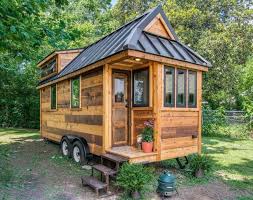
Breaking News
 Erika Kirk shares update after private in-person meeting with Candace Owens
Erika Kirk shares update after private in-person meeting with Candace Owens
 Candace Owens Reacts to Erika Kirk's Interviews and Comments about Questioning TPUSA
Candace Owens Reacts to Erika Kirk's Interviews and Comments about Questioning TPUSA
 Bank of America just leaked their report to institutional clients.
Bank of America just leaked their report to institutional clients.
 IDEAL HUB TO KICK OFF THE GRAND PLAN: BIRTH OF "USAMERICAS"
IDEAL HUB TO KICK OFF THE GRAND PLAN: BIRTH OF "USAMERICAS"
Top Tech News
 This tiny dev board is packed with features for ambitious makers
This tiny dev board is packed with features for ambitious makers
 Scientists Discover Gel to Regrow Tooth Enamel
Scientists Discover Gel to Regrow Tooth Enamel
 Vitamin C and Dandelion Root Killing Cancer Cells -- as Former CDC Director Calls for COVID-19...
Vitamin C and Dandelion Root Killing Cancer Cells -- as Former CDC Director Calls for COVID-19...
 Galactic Brain: US firm plans space-based data centers, power grid to challenge China
Galactic Brain: US firm plans space-based data centers, power grid to challenge China
 A microbial cleanup for glyphosate just earned a patent. Here's why that matters
A microbial cleanup for glyphosate just earned a patent. Here's why that matters
 Japan Breaks Internet Speed Record with 5 Million Times Faster Data Transfer
Japan Breaks Internet Speed Record with 5 Million Times Faster Data Transfer
 Advanced Propulsion Resources Part 1 of 2
Advanced Propulsion Resources Part 1 of 2
 PulsarFusion a forward-thinking UK aerospace company, is pushing the boundaries of space travel...
PulsarFusion a forward-thinking UK aerospace company, is pushing the boundaries of space travel...
 Dinky little laser box throws big-screen entertainment from inches away
Dinky little laser box throws big-screen entertainment from inches away
 'World's first' sodium-ion flashlight shines bright even at -40 ºF
'World's first' sodium-ion flashlight shines bright even at -40 ºF
Tiny Homes Banned in U.S. at Increasing Rate as Govt Criminalizes Sustainable Living

As the corporatocracy tightens its grip on the masses – finding ever more ways to funnel wealth to the top – humanity responds in a number of ways, including the rising popularity of tiny houses.
These dwellings, typically defined as less than 500 square feet, are a way for people to break free of mortgages, taxes, utility bills and the general trappings of "stuff." They're especially attractive to millennials and retirees, or those seeking to live off-grid.
But government and corporations depend on rampant consumerism and people being connected to the grid.
Seeking actual freedom through minimalist living should seem like a natural fit for the American dream, but the reality is that many governments around the country either ban tiny homes or force them to be connected to the utility grid.
"As of now, few cities allow stand-alone tiny houses. Most communities have minimum square footage requirements for single-family homes mandating that smaller dwellings be an "accessory" to a larger, traditional house. Many also have rules requiring that dwellings be hooked up to utilities, which is a problem for tiny-house enthusiasts who want to live off the grid by using alternative energy sources such as solar panels and rainwater catchment systems."
Some of the more recent examples of explicit bans include Etowah, TN and Wasilla, AK, which don't allow homes less than 600 square feet and 700 square feet, respectively.
Boise, ID doesn't allow homes less than a few hundred square feet, as Shaun Wheeler of Wheeler Homes found when he built a perfectly good and safe 310 sq. ft. home.
Lawmakers spout slippery slope fallacies, saying that allowing tiny homes will lead to decay and "unsightly little cabins plunked down next to traditional homes." Using government force to stamp out societal change in response to financial factors is this councilman's idea of conservatism.
Granted, some cities are actually encouraging tiny homes as a means of freedom or as a solution to homelessness, as in Detroit, MI. Some Los Angeles lawmakers don't see it that way, calling tiny homes for the homeless "a threat in many ways to our public safety."
Wasilla residents are baffled by the tiny home ban, which seems to run contrary to Alaska's wild and free nature. Tundra Tiny Houses is leading a new market of small home construction using renewable energy, and now they'll have to tell customers Wasilla is not an option, in addition to Anchorage to Eagle River.



